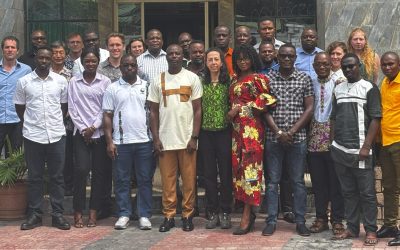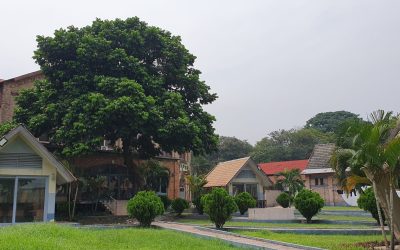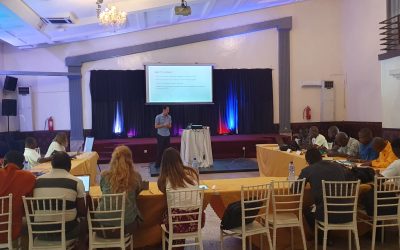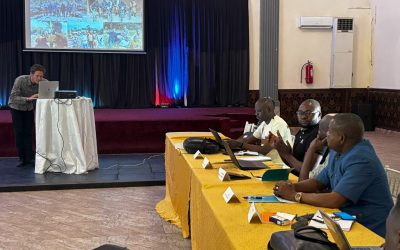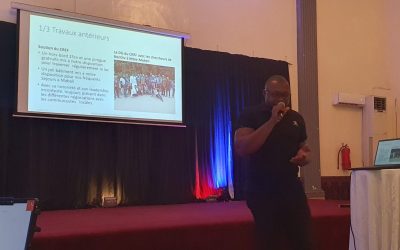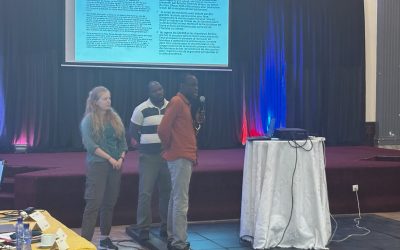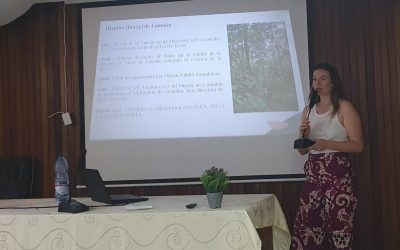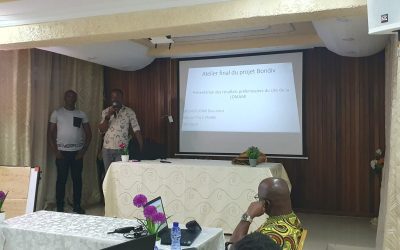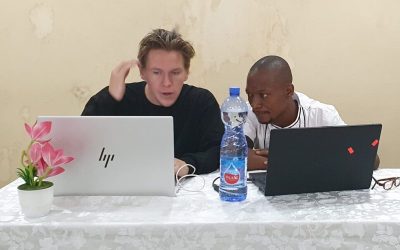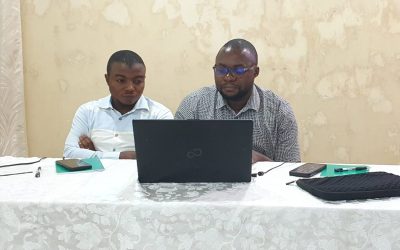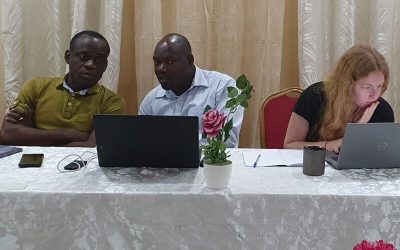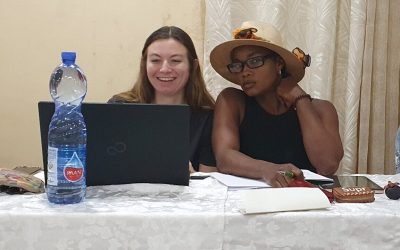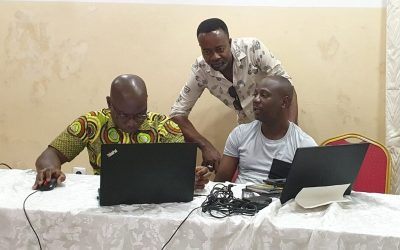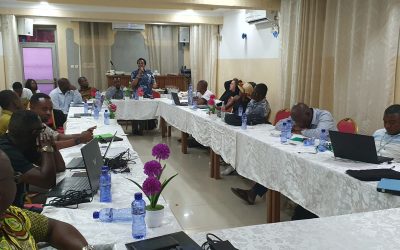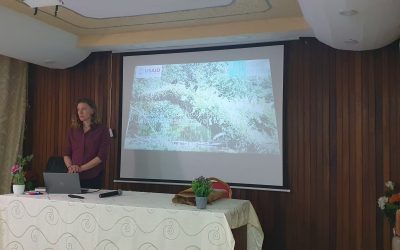Final BonDiv workshop
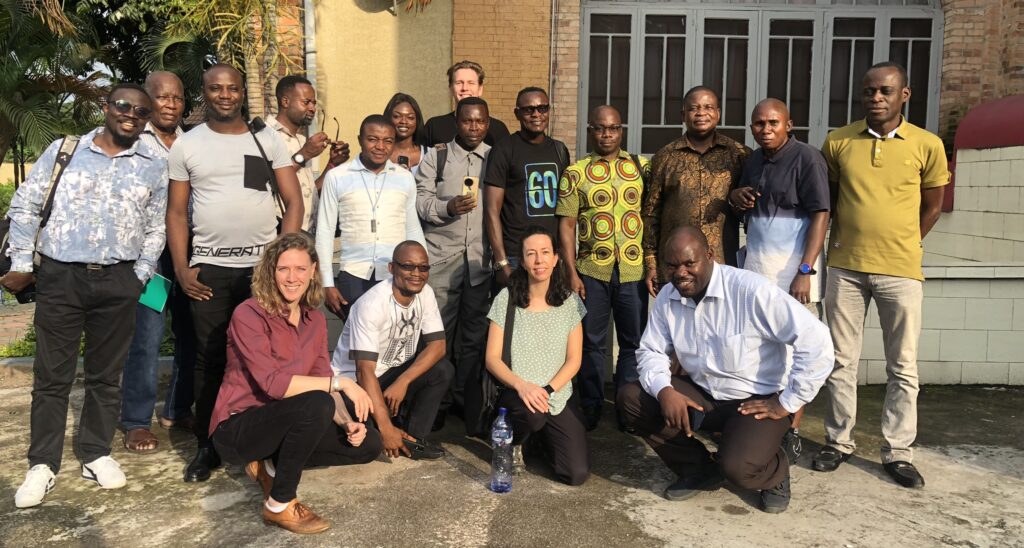
The first round of BonDiv sites started in August 2023, with the opening of 5 sites in collaboration with five local partners. Although all the BonDiv sites followed the same protocol, the particularities of each site resulted in activities being performed at different speeds. The fieldwork started with a recce or reconnaissance survey that helped decide where to place the grid, an area where most of the systematic activities would be performed. The field activities included, among others:
- collection of climatic data during the complete period
- realization of vegetation plots uniformly spread over the grid to understand the diversity and plant composition of the area
- monthly assessment of the availability of plant resources by collecting phenological data on a minimum of 150 individuals of trees or lianes of importance in the diet of the bonobos
- installation of camera traps in a systematic way, to understand the distribution and composition of the local fauna; and in a targeted way, in points of possible use by the bonobos, to help us to evaluate the composition of the bonobo groups and to be able to record possible behaviors of the bonobos
- line transects, to assess faunal abundance, repeated 3 times during the period, to evaluate seasonal changes
- collection of non-invasive bonobo organic samples, including samples for genetic, pathogen, or diet analyses
- collection of samples for environmental DNA analyses
- study of different types of insects…
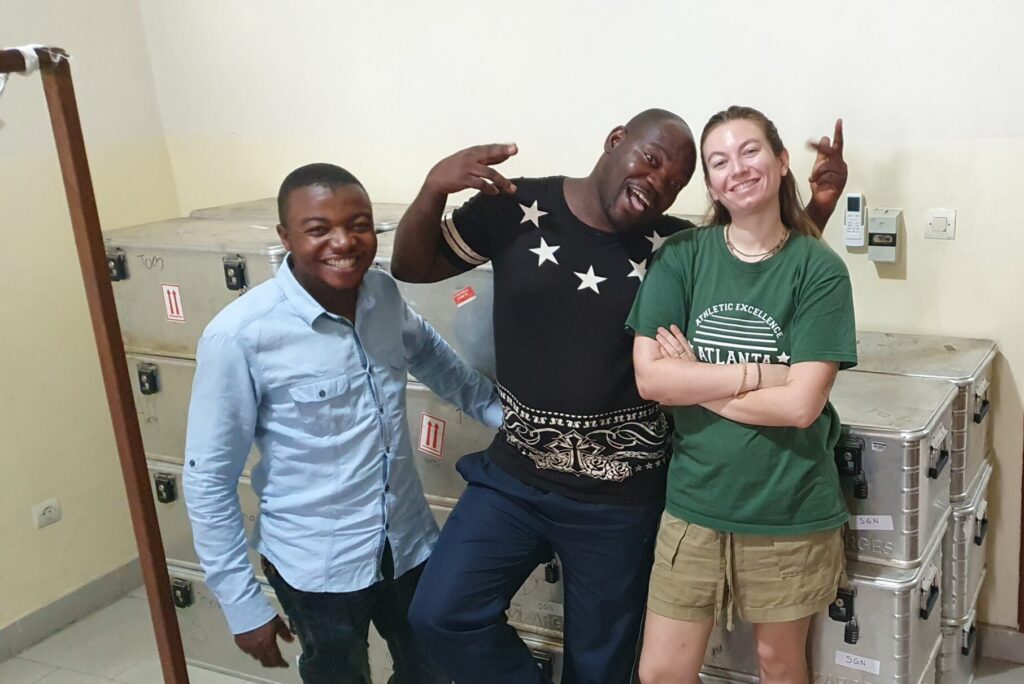
During the field work (14 or 15 months), the 5 active BonDiv sites collected more than 10000 biological samples and 60000 videos from camera traps. All that, together with some material to be used in the next BonDiv sites, was transported safely to Kinshasa.
In January 2025 took place the BonDiv final workshop of the first round of sites, bringing together the project stakeholders (including local organization leaders, local authority representatives, and field researchers) to exchange lessons learned, share the results of fieldwork, and discuss how they can be translated into action. Parallelly, it provided training in analytical methods for processing data collected during fieldwork and served as a platform for launching key publications aimed at sharing results with the wider world.
On top of the local partners and field researchers, BonDiv invited people from the following institutions:
- Ministèr de l’Environnement et Développement Durable
- Ministèr de La Recherche Scientifique et Innovation Technologique
- Institut Congolais pour la Conservation de la Nature
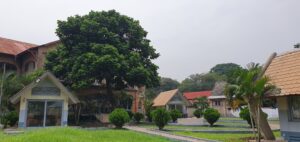
The workshop run for one week, from January 20 to 24, 2025, in Kinshasa, in an atmosphere of exchange, debate, and experience sharing. The workshop had sessions focused on presenting the fieldwork and the basic findings from each of the 5 sites; practice sessions to prepare the data collected in the field to be analyzed and produce preliminary results; sessions to present the results from each data set; and sessions to present the global results and discussion.
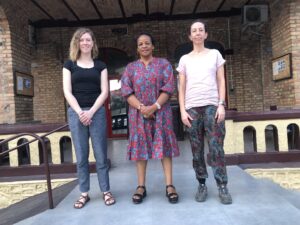
A total of 32 people attended the workshop, with the remarkable presence of Chantal SHALUKOMA, scientific director of the Institut Congolais pour la Conservation de la Nature, who showed her great interest in the project, offered to review the protocol to evaluate together possible adjustments that could help align the objectives of ICCN and BonDiv, and emphasized the need for financial support to support Congolese researchers, a need that BonDiv understands and includes in its next fundraising efforts.
We were honored to have the participation of Dr. Paul N’GORAN, WWF-Coordinator Congo Basin Impact Monitoring, an expert in encounter rate and distance sampling analyses, who instructed the teams in these two objective analyses that served as a baseline for preliminary results.
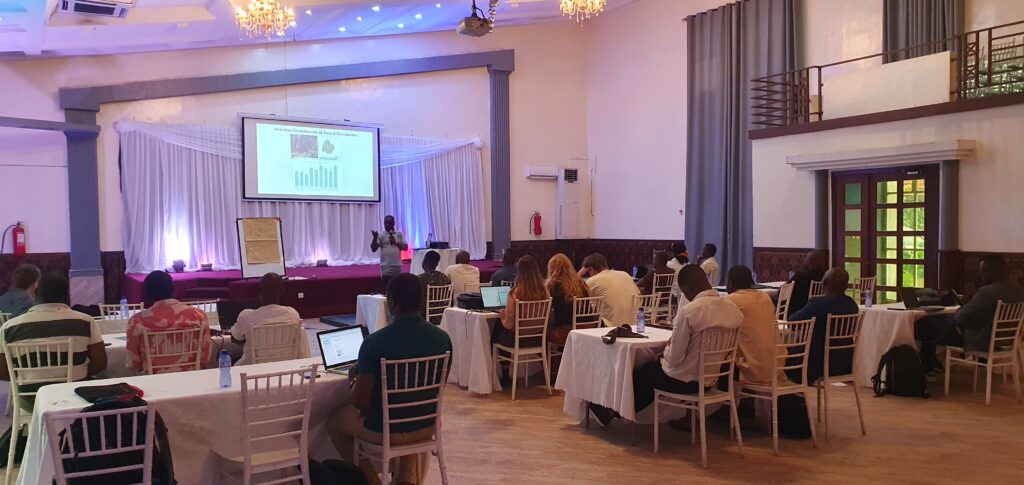
BonDiv is very grateful for the collaboration of the local partners, without whom the fieldwork would not have been possible.
- Mbou Mon Tour (MMT)
- Centre de Recherche en Ecologie et Foresterie (CREF) & World Wildlife Fund – DRC (WWF-DRC)
- Groupe d’Appui à la Conservation des
- Ecosystèmes de Basankusu et de Bolomba (GACEBB)
- Antwerp Zoo Foundation (AZF)
- Frankfurt Zoological Society (FZS)
April 2025, By Paula Dieguez
